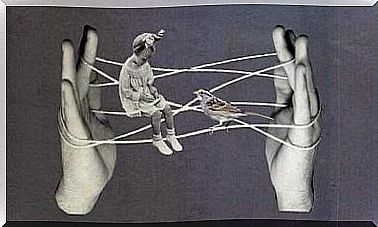Children Learn To Think For Themselves

It is not easy to teach others and it is certainly not easy to teach others to think for themselves. This requires a lot of effort and dedication. In order to teach our children to think, we must first realize that our children have been able to do this for a long time. Despite their age, they have already started developing their reasoning skills and their ability to think logically.
Obeying is not the same as learning
Contrary to popular belief, following instructions is not the same as learning. Giving orders is also not the same as teaching others; this only causes others to submit themselves to you.

You can ask a pet to obey. Pets cannot think and can be trained because they know that in return for their obedience they will receive a reward or recognition.
However, our children, being human beings, already possess the ability to think, understand and reason despite their age . In addition, they have the right to be themselves, with their own ideas, beliefs and views, even though we may not agree with them.
Why It’s Hard To Teach Without Submission
If we look at this from the perspective of a mature teacher, it is undoubtedly more difficult to teach others without asking for obedience. It is more difficult to teach others based on mutual respect, where we find it important to teach children to think for themselves.
During our childhood we have the opportunity to take in everything around us and form an idea about the world, adapted to our age. This means that if we simply teach our children to be obedient, it will be harder for them to think critically when they grow up. They will be afraid of being punished and hesitate to express their opinion. The child will learn that he is not important in the world, which will make him insecure about himself.
This undoubtedly makes education especially difficult when we want to teach our children to think for themselves, to understand, to draw their own conclusions and form their own thoughts.
Dedication, time and stimulation
Teaching children to think critically requires dedication, time, patience and knowledge of the right strategies. Therefore, it is necessary to adopt a reciprocal and respectful attitude that comes from love.
We must give our children the opportunity to grow up in an emotionally healthy way, to feel loved, respected and heard. Because of this, our children will grow up to be confident adults who are strong enough to face the adversities of life. This will allow them to know how to reflect on these challenges and make the best choices.
How can you teach others to think?

In order to teach others to think, it is important to remember a series of educational strategies that will give the child the opportunity to grow, form a picture of himself and gain an understanding of the world around him. And what is even more important for the child and his life path, is that he can always count on our love, support and closeness. These strategies are:
- First of all, it is important to show our child that he is most important to us in our lives, by giving him the affection, love and recognition he deserves, which will help him overcome difficulties and learn and grow from them.
- Second, it is important to give our child the opportunity to choose his own path; that is, not to provide him with completed, resolved, or terminated situations. Try to give your child the opportunity to choose his own path through support and guidance, despite the risk that he may make mistakes in doing so.
- Thirdly, communication and language use are fundamental. By this we mean verbal as well as non-verbal and emotional communication. It is very important to talk to your child in a clear, simple and affectionate way.
- The fourth strategy involves listening to his rationale and his small choices. That you explain to him the consequences associated with this and that in some cases you just let him feel the consequences associated with his own beliefs, so that he will form his own conclusions and draw his own lessons from these experiences.
- Finally, it is important to support your child, to be positive about the small successes he achieves and his small discoveries. That you motivate him to learn the things that we as adults find important to learn, such as the importance of hygiene, study and the way he behaves etc.
It is important to come to an agreement, consequences that both parties agree to, so that your child can participate through communication, understanding and negotiation in the choices, norms and values that you want to convey to him. We should encourage our children to think for themselves what motivates them the most and gives them the most hope.
In this way, our children will grow up in an emotionally healthy way , be confident and able to make their own choices in life.









